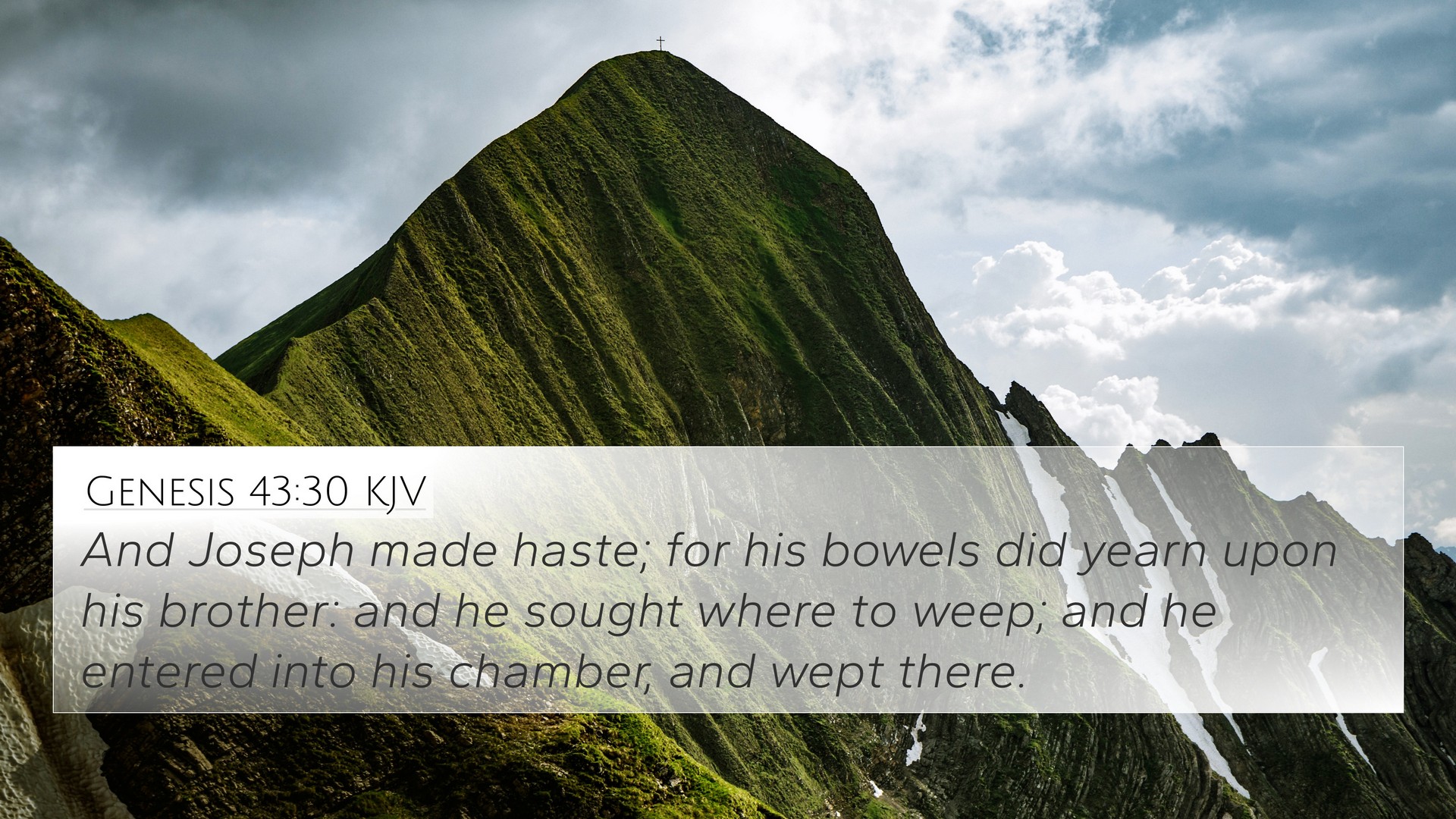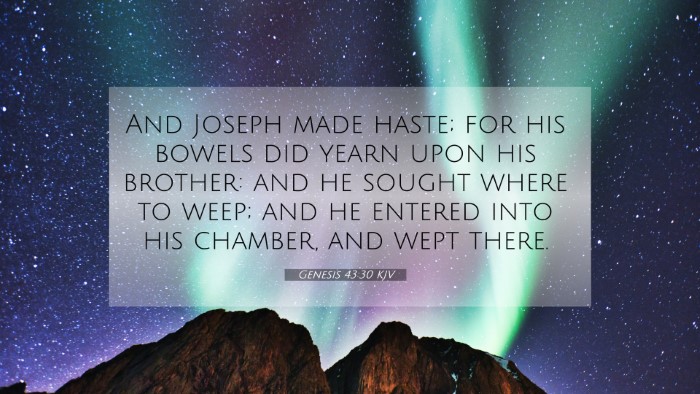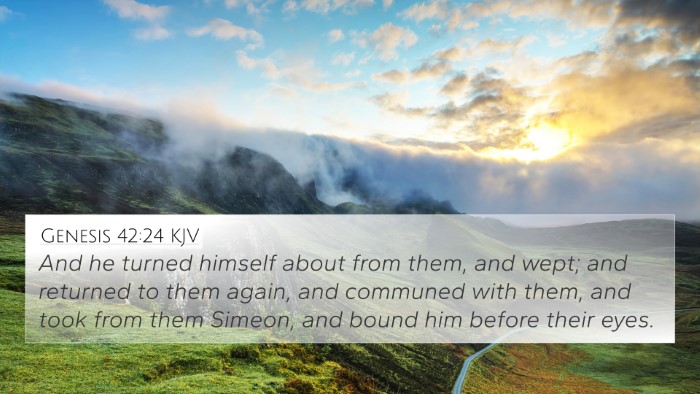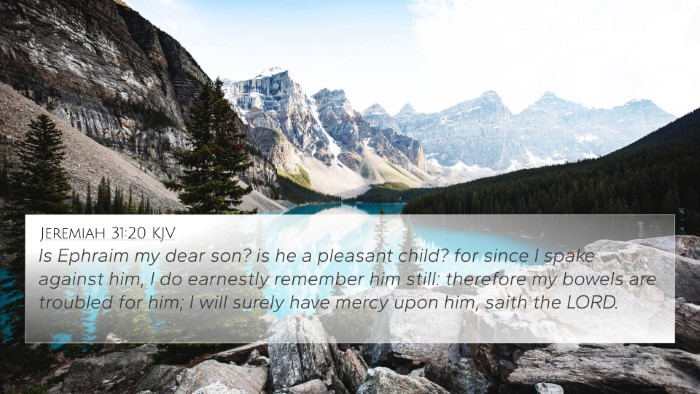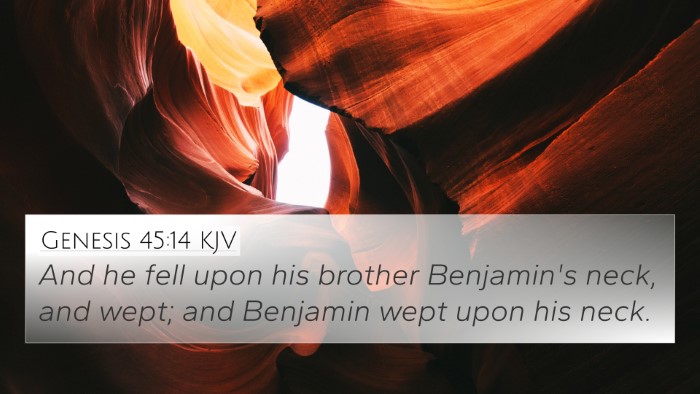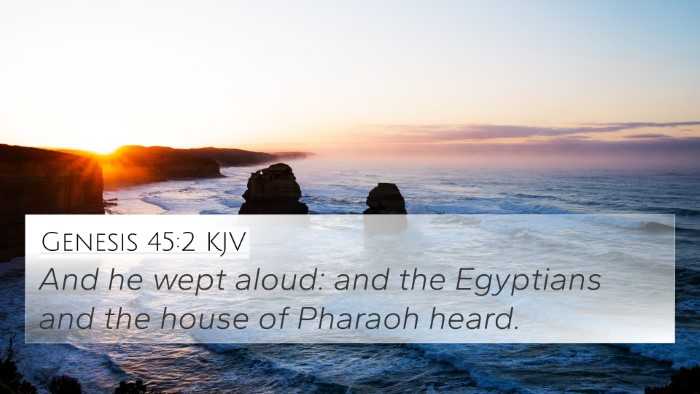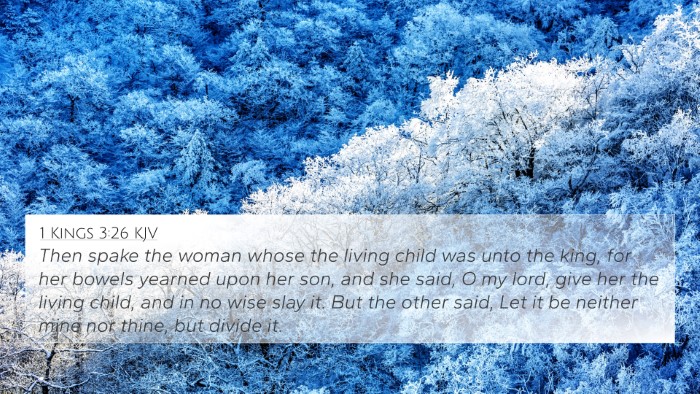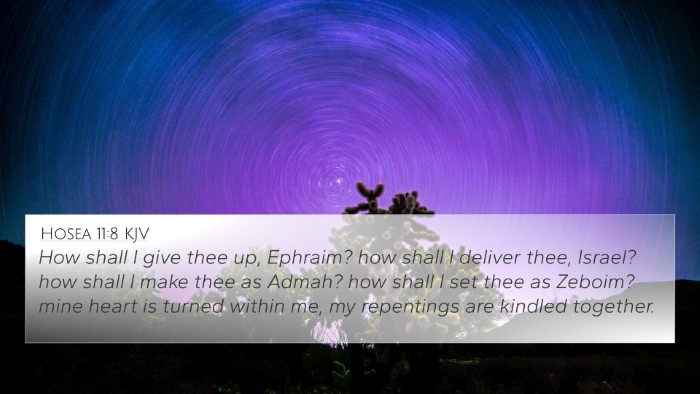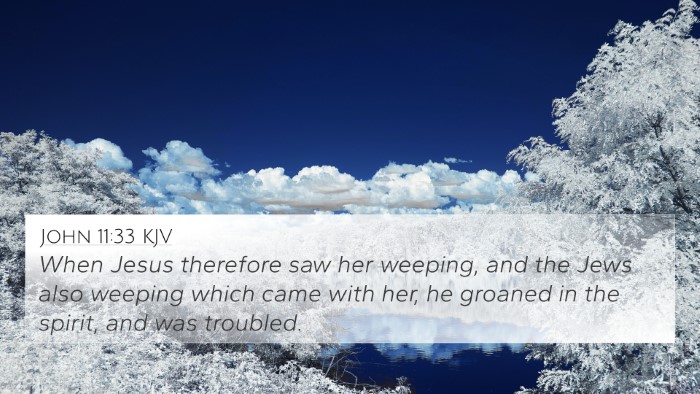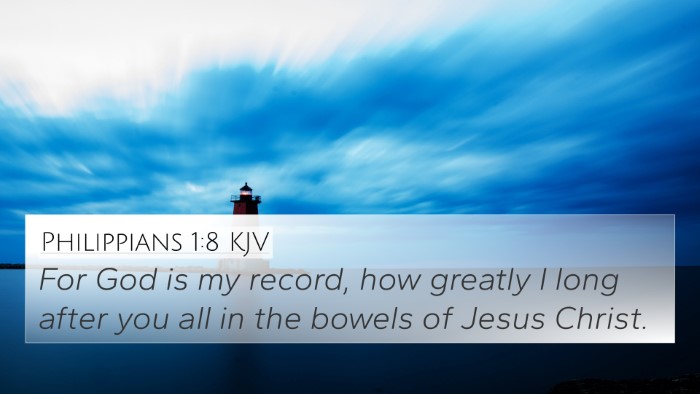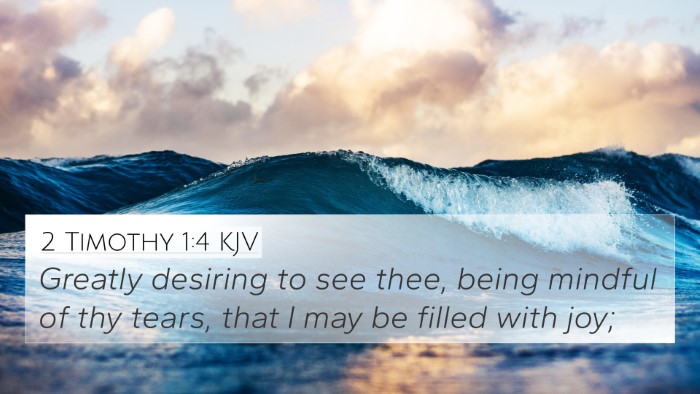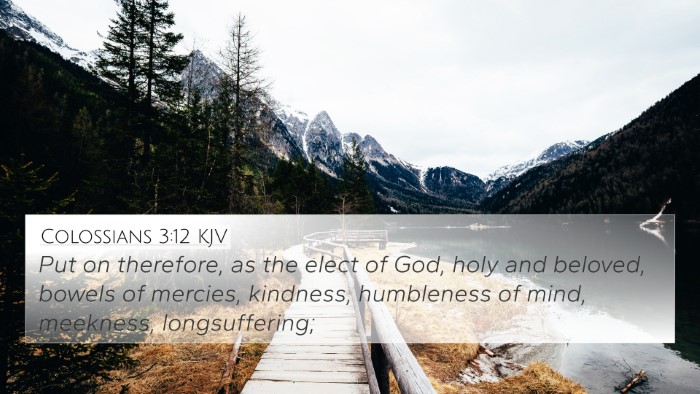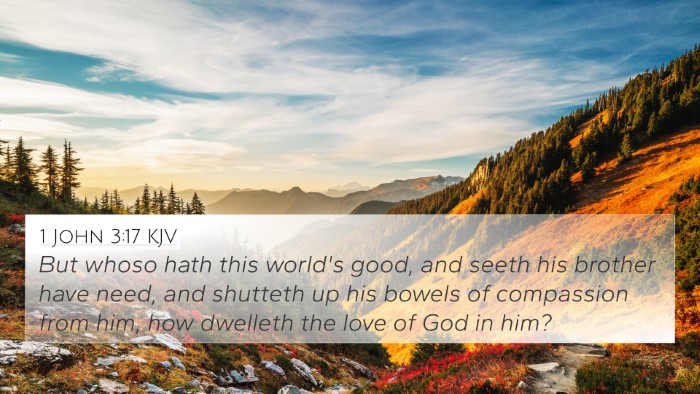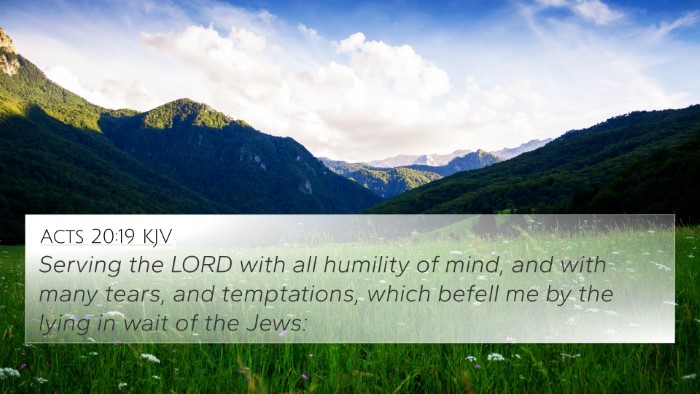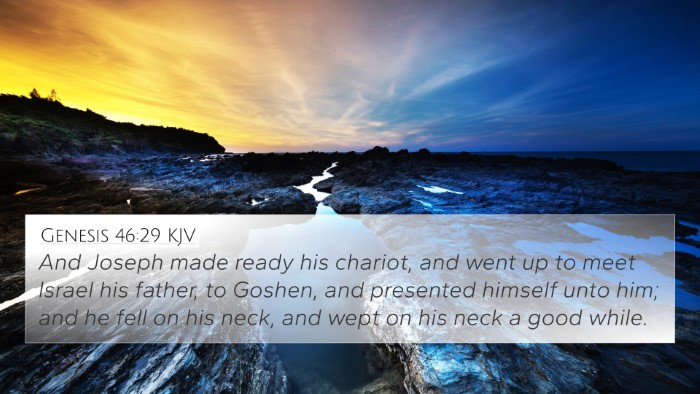Understanding Genesis 43:30
Genesis 43:30 states: "And Joseph made haste; for his bowels did yearn upon his brother: and he sought where to weep; and he entered into his chamber, and wept there." This verse captures a moment of intense emotion as Joseph reveals his deep love and compassion for his brother Benjamin, highlighting themes of familial love, forgiveness, and reconciliation.
Context and Background
To understand the significance of this verse, it is essential to consider the context within the narrative of Joseph's life. The story occurs after Joseph, sold into slavery by his brothers, rises to power in Egypt. He now faces the very brothers who wronged him, which allows for themes of redemption and forgiveness to unfold.
Key Insights from Commentaries
-
Matthew Henry's Commentary:
Henry emphasizes the emotional depth of Joseph's reactions. The term "bowels did yearn" signifies profound compassion and a strong emotional connection to his brother. This serves as a symbol of the transformative power of love, indicating that despite the wrongs of the past, family bonds can evoke deep feelings of empathy and longing.
-
Albert Barnes' Notes:
Barnes comments on Joseph's desire to conceal his emotions initially. He recognizes the weight of his brothers' actions but ultimately allows his heart to express itself. This reflects the internal struggle of dealing with past grievances while yearning for reconciliation.
-
Adam Clarke's Commentary:
Clarke points out the significance of the private space Joseph seeks to process his emotions. The act of weeping in solitude suggests the importance of acknowledging one’s feelings before confronting others. Joseph’s tears symbolize both pain and a pathway to healing.
Thematic Connections
This verse intricately weaves into broader themes within Scripture, encouraging readers to reflect on the concept of forgiveness and restoration in relationships.
Cross-References
Genesis 43:30 resonates well with the following verses:
- Genesis 45:14-15: Joseph reveals himself, exemplifying the power of reconciliation.
- Luke 15:20: The Parable of the Prodigal Son echoes familial love and forgiveness upon reunion.
- Romans 12:19: Paul’s teaching on vengeance reflects Joseph’s shift from resentment to love.
- Psalms 30:5: This verse captures the essence of mourning turning into joy, paralleling Joseph's emotional journey.
- James 5:16: Confession and healing relate to Joseph’s necessary emotional release for reconciliation.
- Matthew 5:7: Blessed are the merciful, which directly ties to Joseph’s compassionate response to his brothers.
- 2 Corinthians 5:18: The ministry of reconciliation points to the need for restoring broken relationships, as seen in Joseph's story.
- Hebrews 12:15: A reminder to look after each other and ensure that no root of bitterness grows, relevant to Joseph's journey towards forgiveness.
- 1 John 3:1: The love of the Father parallels Joseph’s love for his brothers, emphasizing family bonds.
- Ephesians 4:32: A call to be kind and forgiving, echoing the sentiments of Joseph’s tears and desire to reconcile.
Connecting Themes Across Scripture
This verse serves as a poignant reminder of the connections between various biblical narratives, particularly the New Testament teachings on forgiveness and restoration. Joseph's empathy and emotional turmoil reflect the themes of repentance, familial love, and the challenges of reconciliation throughout the Bible.
Using tools for bible cross-referencing, readers can explore these themes and connections further in their studies. For example, the cross-reference Bible study technique allows individuals to identify relationships between scripture and apply these lessons to their lives.
Applying the Insights
Individuals seeking to understand and apply the lessons from Genesis 43:30 can utilize various resources, such as:
- Bible concordance: A valuable tool for finding related verses and themes.
- Bible cross-reference guide: Helps identify verses that support specific themes in scripture.
- Cross-reference Bible study methods: Techniques for thorough comparative analysis of related scriptures.
Conclusion
In summary, Genesis 43:30 encapsulates the profound emotional response Joseph experiences upon seeing his brother. It highlights themes of familial love and the possibility of reconciliation, reinforced by numerous cross-references throughout scripture. For those studying the Bible, understanding such connections not only enhances comprehension but enriches one's spiritual journey. Whether through personal reflection or sermon preparation, examining the inter-Biblical dialogue within this narrative can lead to deeper revelations about forgiveness and empathy.
